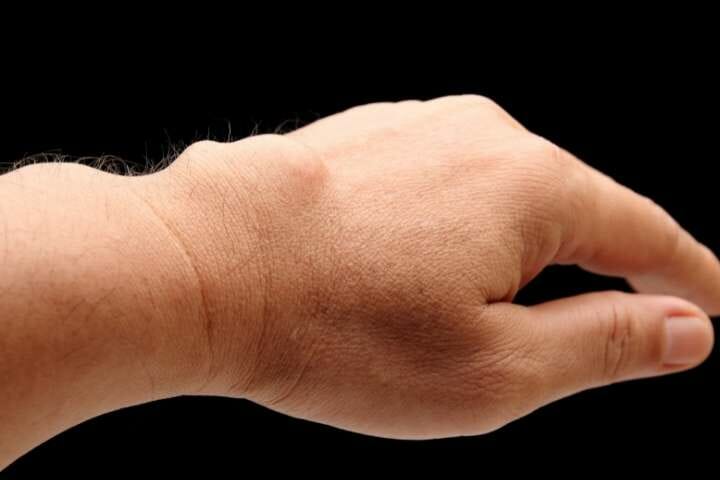Having a cyst can make anyone feel uncomfortable or self-conscious about their appearance, and as though it’s the only thing people look at when they see you.

A cyst can be removed, although the procedure will be different depending on the location and the complexity of it. As with any medical procedure, though, there is a cost associated with it and many people may be worried about how much it’s going to cost to have the medical procedure done.
So, if you have a cyst is the removal of it covered by your insurance? Here’s what you need to know.
Cyst Removal And Insurance Coverage
Every private insurance company will have their own policies when it comes to cyst removal procedures, and they will look for different things from you doctor.
It will also, usually, depend on the type of cyst a person has. Some cysts are removed for purely cosmetic reasons, and there isn’t a risk to the person if the cyst is not removed. When it comes to this type of removal, your insurance company not cover it because there is not a medically necessary reason to do so.
For other types of cysts, there could be a medical impact and it could be interfering with a person’s quality of life (or causing them pain) if the cyst is not removed. In this case, there is a better argument for the cyst to be removed and covered by insurance because there could be bigger complications down the road if it’s not.
For your specific case, it’s best to get your doctor involved and get a recommendation from them about the best course of action. Your insurance company ask for letters or other information from your doctor to verify that they are covering something medically necessary and not just because you don’t like how it looks.
Now, if the cyst is not causing pain or discomfort for the person who has it then their insurance may choose to cover part of the procedure or some of the medications involved for after the procedure.
You may need to get a pre-determination of benefits before going through with the procedure or surgery in order for it to be covered. Make sure you are checking with your insurance policy coverage to verify your coverage as needed.
You might like to read: Medicare Part D Donut Hole -All You Need To Know
Cyst Removal With Medicare
If you don’t have private insurance, that’s ok you may still qualify for cyst removal surgery.

If the cyst you have is medically necessary to be removed then Medicare will most often be covered by the benefits you receive from them. If you are just seeking it out for aesthetic reasons then you may not be able to get it covered.
You will need to contact your case worker at Medicare to determine what your benefits are and if your case qualifies. You may also need to see certain doctors or have your doctor talk to Medicare to confirm that this procedure is needed.
Before going through with it, or even booking an appointment, make sure you reach out to Medicare and talk to them before. If you expect that your procedure will be covered and just go ahead with it then you may be shocked that Medicare declines your claim.
So, What Exactly Is A Cyst?
A cyst is a sac filled with fluid, and it can be anywhere on someone’s body. Cysts can form on bones, organs and any kind of tissue. If a cyst forms on the skin, or just under it, it is typically filled with fluid, cells, bacteria and sometimes even pus.
The size of cysts can vary, and usually depend on where they are located in the body. There is not a standard size for cysts. However, they will grow as time goes on because cells become trapped in the cyst and that causes it grow larger.
You might like to read: Cosmetic Surgery For Seniors – How Old Is Too Old?
How Do You Know If You Have A Cyst?
In the beginning, a cyst can feel like a small knot or little kernel just sitting under your skin. If you have a cyst growing internally, then you may not even know you have it. The only cysts are obvious are usually ones that sit just under the skin of a person.
However, there may be other symptoms when you have an internal cyst. For example, ovarian cysts may cause the person to have bleeding, cramping or acute pain in the lower abdomen. There could be no symptoms at all, though, for internal cysts. It really depends on the person and each situation.
As the cyst grows, it may cause some pain and discomfort – especially if it’s in an area where it bumps a lot of things or gets caught on things.
What Causes A Cyst?
There are a number of things the can cause a cyst to form. For cysts under the skin, it could start as an ingrown hair or acne pore that has become infected – and the infection just continues to grow.

The infection may be causing a smell when the cyst is squeeze or popped. And you may need antibiotics to clear up the root of why the cyst happened.
If there is a foreign object that has somehow gotten under the skin, your body will try to push it out because your body doesn’t want it in there. However, if the way out is blocked then it may get trapped and this will cause the cyst to form.
When there is a cyst elsewhere in your body, it can form for any number of reasons and there may be no clear cut reason as to why it happened. In general, cysts are fluid filled sacs – and they may be filled with bacteria and other skin cells – that will continue to grow until they burst.
Even when you have a cyst removed, your doctor may not be able to definitively determine why it happened. People are not prone to cysts nor is it really genetic, they just happen sometimes. Also, once you have had one it doesn’t mean you’re going to have more in the future.
You might like to read: Your Quick Guide To Long Term Care Insurance
Different Kinds Of Cysts
There are a few different types of cysts that could develop for someone. When it comes to skin cysts, though, there are three types that are the most commonly seen: pilar cysts, digital mucous cysts and sebaceous cysts.
Each of these type of skin cysts has different symptoms and characteristics, but if you notice a bump or knot in your skin then it is important to get it checked out and looked at by a doctor as soon as possible.
Can Any Doctor Perform The Treatment For A Cyst?
Your primary care physician can treat a cyst and do a removal of it, however most cysts are removed by dermatologists as they are specialists when it comes to this type of care.

Dermatologists specialize in understanding skin care and conditions, so they will be able to make the best recommendations for removing the cyst and for any special follow up instructions you may need to know about.
In most cases, the cyst will be removed as an outpatient procedure, so you won’t need to be in the hospital overnight or anything. If the cyst has ruptured, your doctor may choose to lance it but if it’s still completely intact then they can excise it completely as a whole.
If a doctor choose to lance a cyst, it’s important that they are also able to remove the sac of the cyst as well. If the sac is not removed then eventually the cyst will fill with fluid again and it will completely form again over time.
Either type of removal will involve sutures so that the wound will heal over time. Your doctor may opt for dissolving stitches but some may ask you to come back for the removal so that they can check out the wound and see how it’s healing.
Do you need to be worried a cyst could be a sign of a bigger health problem?
When your doctor removes the cyst, they will likely send part of it (or all of it) to the lab to see the pathology of it. This will tell the doctor if there’s a cause for concern or a need to monitor the area the cyst was in.
In most cases, cysts are benign but there are some times when it could be a sign of a bigger medical condition. Your doctor will let you know what to expect and if they have any reason to suspect it’s a bigger problem.
You might like to read: C Section Scar Revision Covered by Insurance
In Summary
The removal of your cyst may be covered by your private insurance, or Medicare, benefits, but it’s important to make sure you check before starting the procedure to see if there are certain requirements to get the coverage.
You don’t have to live with having a cyst forever, especially if it’s causing you pain or making you feel uncomfortable with your altered appearance. Make an appointment with your doctor to talk about your options and see what is best for you. Your doctor will be able to determine the best course of action for your specific situation.
